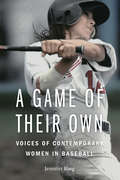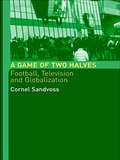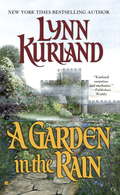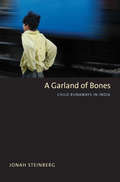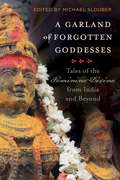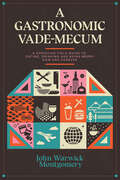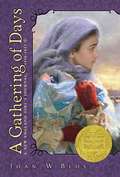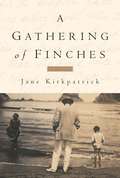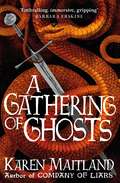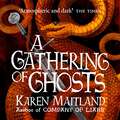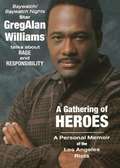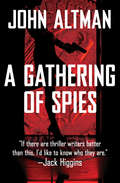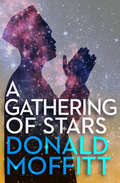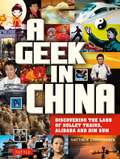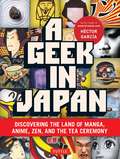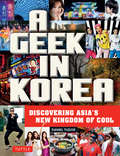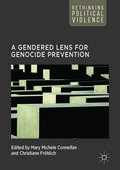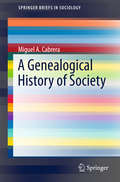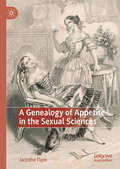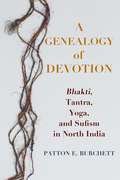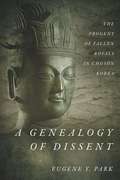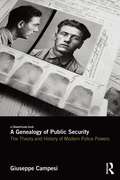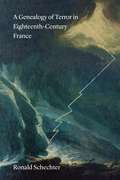- Table View
- List View
A Game of Their Own: Voices of Contemporary Women in Baseball
by Jennifer RingIn 2010 twenty American women were selected to represent Team USA in the fourth Women’s Baseball World Cup in Caracas, Venezuela; most Americans, however, had no idea such a team even existed. A Game of Their Own chronicles the largely invisible history of women in baseball and offers an account of the 2010 Women’s World Cup tournament. Jennifer Ring includes oral histories of eleven members of the U.S. Women’s National Team, from the moment each player picked up a bat and ball as a young girl to her selection for Team USA. Each story is unique, but they share common themes that will resonate with young female players and fans alike: facing skepticism and taunts from players and parents when taking the batter’s box or the pitcher’s mound, self-doubt, the unceasing pressure to switch to softball, and eventual acceptance by their baseball teammates as they prove themselves as ballplayers. These racially, culturally, and economically diverse players from across the country have ignored the message that their love of the national pastime is “wrong.” Their stories come alive as they recount their battles and most memorable moments playing baseball—the joys of exceeding expectations and the pleasure of honing baseball skills and talent despite the lack of support. With exclusive interviews with players, coaches, and administrators, A Game of Their Own celebrates the U.S. Women’s National Team and the excellence of its remarkable players. In response to the jeer “No girls allowed!” these are powerful stories of optimism, feistiness, and staying true to oneself.
A Game of Two Halves: Football Fandom, Television and Globalisation (Comedia)
by Cornel SandvossProfessional football is one of the most popular television 'genres' worldwide, attracting the support of millions of fans, and the sponsorship of powerful companies. In A Game of Two Halves, Sandvoss considers football's relationship with television, its links with transnational capitalism, and the importance of football fandom in forming social and cultural identities around the globe. He presents the phenomenon of football as a reflection postmodern culture and globalization.Through a series of case studies, based in ethnographic audience research, Sandvoss explores the motivations and pleasures of football fans, the intense bond formed between supporters and their clubs, the implications of football consumption on political discourse and citizenship, football as a factor of cultural globalisation, and the pivotal role of football and television in a postmodern cultural order.
A Garden In The Rain (Macleod Family #8)
by Lynn KurlandNew York Times bestselling author Lynn Kurland tells the story of Patrick MacLeod--the first MacLeod to discover the secrets of his ancestral land... Patrick MacLeod is haunted by his past, by events he had no control over and wishes desperately he could change. He hasn't the heart for love, nor the time for rescuing maidens in distress of their own making. Until he sees a woman who touches his heart and stirs his soul...and makes him believe love might be possible again after all. For Madelyn Phillips, Scotland is the land of dreams, filled with magic, romance, and handsome Highland lords. Unfortunately, the reality of her dream vacation is no car, no luggage, and a pesky ex-fiancé determined to shadow her every move. She thinks her dreaming is in vain. Until she sees a man standing on a windswept moor, a Highlander full of secrets and longing, and knows she has seen her destiny. But the past isn't through with either of them, and it will take all the love both of them possess to make their dreams come true...
A Garland of Bones: Child Runaways in India (Yale Agrarian Studies Series)
by Jonah SteinbergAn intimate portrait of India’s child runaways, and the sociopolitical forces shaping their lives This intimate portrait examines the tracks, journeys, and experiences of child runaways in northern India. Jonah Steinberg situates children’s decisions to leave home and flee for the city in their larger cultural, social, and historical contexts, and considers histories of landlessness and debt servitude in narratives of child dislocation. The resulting work is an original perspective on the sociological trends in postcolonial India and a unique treatment of a population of individuals who live on the margin of society.
A Garland of Forgotten Goddesses: Tales of the Feminine Divine from India and Beyond
by Michael SlouberImagining the divine as female is rare—even controversial—in most religions. Hinduism, by contrast, preserves a rich and continuous tradition of goddess worship. A Garland of Forgotten Goddesses conveys the diversity of this tradition by bringing together a fresh array of captivating and largely overlooked Hindu goddess tales from different regions. As the first such anthology of goddess narratives in translation, this collection highlights a range of sources from ancient myths to modern lore. The goddesses featured here battle demons, perform miracles, and grant rare Tantric visions to their devotees. Each translation is paired with a short essay that explains the goddess’s historical and social context, elucidating the ways religion adapts to changing times.
A Gastronomic Vade Mecum: A Christian Field Guide to Eating, Drinking, and Being Merry Now and Forever
by John Warwick MontgomeryVade-mecums are guide books you carry with you. They have been around forever and are common in Europe for all sorts of things. The Latin term literally means "go with me". Here, Dr. Montgomery invites you to go with him as he explores the literature of food and develops a theology of gastronomy. Along with being a theologian and philosopher, an attorney, a barrister, a French advocate, a teacher, a husband and many other things, Dr. Montgomery is a lover of fine dining and formally embraces its craft with care. In the age of the microwave, where food is either fast or frozen and almost always pre-prepared, he wants to introduce us to the glories of fine dining, where we can take joy in all our Father has provided to us beyond the simple requirements of sustenance. With Dr. Montgomery as your guide, you will meet great chefs, and travel across time and space with food as the focus, enjoying the views, flavors and smells (and recipes!) Everything Dr. Montgomery explores takes place in light of faith in a God who is now one of us, who made all the senses, loves variety, knows hospitality, and will culminate all of history in the best of wedding feasts to which every good meal points and of which every great meal participates.
A Gathering of Days: A New England Girl's Journal, 1830-1832
by Joan W. BlosI, Catherine Cabot Hall, aged 13 years, 6 months, 29 days...do begin this book. So begins the journal of a girl coming of age in nineteenth-century New Hampshire. Catherine records both the hardships of pioneer life and its many triumphs. Even as she struggles with her mother's death and father's eventual remarriage, Catherine's indomitable spirit makes this saga an oftentimes uplifting and joyous one. <P><P> Winner of the Newbery Medal<P> Winner of the National Book Award<P>
A Gathering of Finches: A Novel (Dreamcatcher #3)
by Jane KirkpatrickBased on historical characters and events, A Gathering of Finches tells the story of a turn-of-the-century Oregon coastal couple and the consequences of their choices, as seen through the eyes of the wife, her sister, and her Indian maid. Along the way, the reader will discover reasons to trust that money and possessions can't buy happiness or forgiveness, nor permit us to escape the consequences of our choices. The story emphasizes the message that real meaning is found in the relationships we nurture and in living our lives in obedience to God.From the Trade Paperback edition.
A Gathering of Ghosts
by Karen MaitlandPagans tackle the Knights of St John with terrible consequences in the new medieval thriller by Queen of the Dark Ages, Karen Maitland. Set on the wilds of Dartmoor, this is a ghostly tale for fans of The Essex Serpent, C. J. Sansom's Shardlake series and The Burning Chambers by Kate Mosse. 'A dark read... fear and hysteria are portrayed with claustrophobic skill' The Times on THE PLAGUE CHARMER1316. On the wilds of Dartmoor stands the isolated Priory of St Mary, home to the Sisters of the Knights of St John. People journey from afar in search of healing at the holy well that lies beneath its chapel.But the locals believe Dartmoor was theirs long before Christianity came to the land. And not all who visit seek miracles. When three strangers reach the moor, fear begins to stir as the well's waters run with blood.What witchcraft have the young woman, the Knight of St John and the blind child brought with them?The Sisters will need to fight for everything they hold dear as the ghosts of the Old World gather in their midst.
A Gathering of Ghosts
by Karen MaitlandPagans tackle the Knights of St John with terrible consequences in the new medieval thriller by Queen of the Dark Ages, Karen Maitland. Set on the wilds of Dartmoor, this is a ghostly tale for fans of The Essex Serpent, C. J. Sansom's Shardlake series and The Burning Chambers by Kate Mosse. 'A dark read... fear and hysteria are portrayed with claustrophobic skill' The Times on THE PLAGUE CHARMER1316. On the wilds of Dartmoor stands the isolated Priory of St Mary, home to the Sisters of the Knights of St John. People journey from afar in search of healing at the holy well that lies beneath its chapel.But the locals believe Dartmoor was theirs long before Christianity came to the land. And not all who visit seek miracles. When three strangers reach the moor, fear begins to stir as the well's waters run with blood.What witchcraft have the young woman, the Knight of St John and the blind child brought with them?The Sisters will need to fight for everything they hold dear as the ghosts of the Old World gather in their midst.
A Gathering of Ghosts
by Karen MaitlandPagans tackle the Knights of St John with terrible consequences in the new medieval thriller by Queen of the Dark Ages, Karen Maitland. Set on the wilds of Dartmoor, this is a ghostly tale for fans of The Essex Serpent, C. J. Sansom's Shardlake series and The Burning Chambers by Kate Mosse. 'A dark read... fear and hysteria are portrayed with claustrophobic skill' The Times on THE PLAGUE CHARMER1316. On the wilds of Dartmoor stands the isolated Priory of St Mary, home to the Sisters of the Knights of St John. People journey from afar in search of healing at the holy well that lies beneath its chapel.But the locals believe Dartmoor was theirs long before Christianity came to the land. And not all who visit seek miracles. When three strangers reach the moor, fear begins to stir as the well's waters run with blood.What witchcraft have the young woman, the Knight of St John and the blind child brought with them?The Sisters will need to fight for everything they hold dear as the ghosts of the Old World gather in their midst.(P)2018 Headline Publishing Group Ltd.
A Gathering of Heroes: A Personal Memoir of the Los Angeles Riots
by Gregalan WilliamsOn April 29, 1992, Baywatch actor GregAlan Williams walked into the midst of the South Los Angeles riot and rescued a nearly lifeless Japanese motorist amidst a shower of verbal abuse and debris. An African American, Williams reflects on the obligation we bear when confronted with the mindless face of violence.
A Gathering of Spies
by John AltmanA beautiful Nazi spy and an enigmatic British double agent match wits in this gripping World War II thriller Gorgeous, cunning, and lethal, Katarina Heinrich is America’s worst nightmare. For years, the German spy has been deep undercover, posing as the happy wife of a Princeton scientist. Now she is rushing home with key intelligence pertaining to the atomic bomb. If she reaches her destination, the war will be lost. To stop her, the Allies turn to Professor Harry Winterbotham, an MI5 agent whose brilliance is matched only by his inscrutability. As Winterbotham hatches his own secret plan—one with the potential to deliver the world’s greatest weapon into the hands of the Nazis—the two spies play a deadly game of cat and mouse across the United States and Europe. From one breathtaking double cross to the next, A Gathering of Spies builds to a stunning climax among the best in espionage fiction. Lightning-paced, atmospheric, and irresistible, it is a classic story of World War II that thrills from first page to last.
A Gathering of Stars (Mechanical Sky #2)
by Donald MoffittIn this sci-fi fantasy, a scientist is ordered to master the challenges of space travel in order to satisfy the political schemes of an ambitious leader. Though the Great Awakening spread the teachings of Islam throughout the universe more than a thousand years earlier, no ruler has yet attempted to rule the Muslim Empire. Until now. The sultan Alpha Centauri is ready to claim the Caliph title, but he cannot do so without making the necessary pilgrimage to the holy city of Mecca. With human knowledge of interplanetary travel still limited, the sultan engages the help of Abdul Hamid-Jones. Abdul may be a fugitive from the law, but he&’s also one of the few men smart enough to rise to the challenge. But soon after being immersed into the world of astrophysics and court politics, Abdul understands that his only option is to succeed with the sutan&’s plan. For the fate of the entire solar system depends on it.
A Geek in China: Discovering the Land of Alibaba, Bullet Trains and Dim Sum
by Matthew B. ChristensenFor every fan of kung fu, steamed dumplings, Confucius and giant skyscrapers, A Geek in China is a hip, smart and concise guide to the Middle KingdomPacked with photographs and short articles on all aspects of Chinese culture, past and present, A Geek in China introduces readers to everything from Taoism and Confucianism to pop music and China's new middle class. A mix of traditional culture, such as highlights of Chinese history, great historical and mythological figures, traditional medicine, how the Chinese language works, real Chinese food, martial arts, and how the Chinese Communist Party works, is complimented with information on what makes China unique today.Chapters discuss why China is so crowded, what it's like to work in an office, internet and cell phone culture, dating and marriage practices, top popular movies and movie stars, the contemporary art scene, China's amazing new architecture and infrastructure, and popular holidays. It also contains chapters on what makes the Chinese tick, such as the importance of harmony in society, the practice of humility, and the importance of hierarchy. For visitors to the country, the author includes sections on what to see, both common cultural sites and off-the-beaten-track sites.
A Geek in Japan
by Hector GarciaFor every fan of manga, anime, J-pop, or Zen, A Geek in Japan is a hip, smart and concise guide to the land that is their source. Comprehensive and well informed, it covers a wide array of topics in short articles accompanied by sidebars and numerous photographs, providing a lively digest of the society and culture of Japan. Designed to appeal to the generations of Westerners who grew up on Pokemon, manga and video games, A Geek in Japan reinvents the culture guide for readers in the Internet age.Spotlighting the originality and creativity of the Japanese, debunking myths about them, and answering nagging questions like why they're so fond of robots, author Hector Garcia has created the perfect book for the growing ranks of Japanophiles in this inspired, insightful and highly informative guide.
A Geek in Korea
by Daniel TudorFor every fan of K-Pop music, Korean Wave dramas and Kimchi--or anyone intrigued by Korea and Korean culture--A Geek in Korea is a hip, new guide to the land of the Samsung smartphone and Gangnam Style.Author Dan Tudor first arrived in Korea on the eve of the 2002 World Cup when South Korea played Italy in the finals. What he saw inspired him to return and work in Korea. He served as The Economist magazine's Korea correspondent for three years, and he writes regular columns for the national daily Joongang Ilbo newspaper. Along the way, he has developed a great love and admiration for Korean culture and the Korean people.A Geek in Korea reinvents the culture guide for the Internet age. Packed with articles and photographs, it covers all the touchstones of Korean culture--from Buddhism and Confucianism to chapters on the traditional arts and disciplines like Taekwondo.Spotlighting the originality and creativity of the Koreans, debunking myths about them, and answering nagging questions like why they're so obsessed with education and success--Tudor has created the perfect book for the growing ranks of Koreaphiles in this inspired, insightful, and highly informative guide.
A Gendered Lens for Genocide Prevention (Rethinking Political Violence)
by Mary Michele Connellan Christiane FröhlichThis edited collection develops a gendered lens for genocide prevention by uncovering socially constructed gender roles which are crucial for the onset, form and prevention of genocide and mass atrocities. This volume draws on contemporary feminist theory, concepts of masculinity, critical discussions of international law, and in-depth case studies to provide a better understanding of the function of gender at different stages of genocide and mass atrocity processes as well as a basis for more comprehensive strategies for genocide prevention.
A Genealogical History of Society (SpringerBriefs in Sociology)
by Miguel A. CabreraThis book provides a detailed reconstruction of the process of formation of the modern concept of society as an objective entity from the 1820s onwards, thus helping to better understand the shaping of the modern world and the nature of the current crisis of modernity. The concept has exerted considerable influence over the last two centuries, during which time many people have conceived themselves and behave as members of a society, and social scientists have explained human subjectivities and conducts as social effects. For both groups, society exists as a very real phenomenon. Historical inquiry shows, however, that the modern concept of society is no more than a historically contingent way of imagining and making sense of the human world.
A Genealogy of Appetite in the Sexual Sciences
by Jacinthe FloreThis book offers a genealogy of the medicalisation of sexual appetite in Europe and the United States from the nineteenth to twenty-first century. Histories of sexuality have predominantly focused on the emergence of sexual identities and categories of desire. They have marginalised questions of excess and lack, the appearance of a libido that dwindles or intensifies, which became a pathological object in Europe by the nineteenth century. Through a genealogical approach that draws on the writings of Michel Foucault, A Genealogy of Appetite in the Sexual Sciences examines key ‘moments’ in the pathologisation of sexuality and demonstrates how medical techniques assumed critical roles in shaping modern understandings of the problem of appetite. It examines how techniques of the patient case history, elixirs and devices, measurement, diagnostic manuals and pharmaceuticals were central to the medicalisation of sexual appetite. Jacinthe Flore argues that these techniques are significant for understanding how a concern with ‘how much?’ has transformed medical knowledge of sexuality since the nineteenth century. The questions of ‘how much?’, ‘how often?’ and ‘how intense?’ thus require a genealogical investigation that pays attention to the emergence of medical techniques, the transformation of forms of knowledge and their effects on the problematisations of sexual appetite.
A Genealogy of Devotion: Bhakti, Tantra, Yoga, and Sufism in North India
by Patton E. BurchettIn this book, Patton E. Burchett offers a path-breaking genealogical study of devotional (bhakti) Hinduism that traces its understudied historical relationships with tantra, yoga, and Sufism. Beginning in India’s early medieval “Tantric Age” and reaching to the present day, Burchett focuses his analysis on the crucial shifts of the early modern period, when the rise of bhakti communities in North India transformed the religious landscape in ways that would profoundly affect the shape of modern-day Hinduism.A Genealogy of Devotion illuminates the complex historical factors at play in the growth of bhakti in Sultanate and Mughal India through its pivotal interactions with Indic and Persianate traditions of asceticism, monasticism, politics, and literature. Shedding new light on the importance of Persian culture and popular Sufism in the history of devotional Hinduism, Burchett’s work explores the cultural encounters that reshaped early modern North Indian communities. Focusing on the Rāmānandī bhakti community and the tantric Nāth yogīs, Burchett describes the emergence of a new and Sufi-inflected devotional sensibility—an ethical, emotional, and aesthetic disposition—that was often critical of tantric and yogic religiosity. Early modern North Indian devotional critiques of tantric religiosity, he shows, prefigured colonial-era Orientalist depictions of bhakti as “religion” and tantra as “magic.” Providing a broad historical view of bhakti, tantra, and yoga while simultaneously challenging dominant scholarly conceptions of them, A Genealogy of Devotion offers a bold new narrative of the history of religion in India.
A Genealogy of Dissent: The Progeny of Fallen Royals in Chosŏn Korea
by Eugene Y. ParkIn early modern Korea, the Chosŏn state conducted an extermination campaign against the Kaesŏng Wang, descendants of the preceding Koryŏ dynasty. It was so thorough that most of today's descendants are related to a single survivor. Before long, however, the Chosŏn dynasty sought to bolster its legitimacy as the successor of Koryŏ by rehabilitating the surviving Wangs—granting them patronage for performing ancestral rites and even allowing them to attain prestigious offices. As a result, Koryŏ descendants came to constitute elite lineages throughout Korea. As members of the revived aristocratic descent group, they were committed to Confucian norms of loyalty to their ruler. The Chosŏn, in turn, increasingly honored Koryŏ legacies. As the state began to tolerate critical historical narratives, the early plight of the Wangs inspired popular accounts that engendered sympathy. Modern forces of imperialism, colonialism, nationalism, urbanization, industrialization, and immigration transformed the Kaesŏng Wang from the progeny of fallen royals to individuals from all walks of life. Eugene Y. Park draws on primary and secondary sources, interviews, and site visits to tell their extraordinary story. In so doing, he traces Korea's changing politics, society, and culture for more than half a millennium.
A Genealogy of Evil: Anti-Semitism from Nazism to Islamic Jihad
by David Patterson"Based on extensive scrutiny of primary sources from Nazi and Jihadist ideologues, David Patterson argues that Jihadist antisemitism stems from Nazi ideology. This book challenges the idea that Jihadist antisemitism has medieval roots, identifying its distinctively modern characteristics and tracing interconnections that link the Nazis to the Muslim Brotherhood to the PLO, Fatah, Hamas, Islamic Jihad, Hezbollah, Al-Qaeda, the Sudan, the Iranian Islamic Republic, and other groups with an antisemitic worldview. Based on his close reading of numerous Jihadist texts, Patterson critiques their antisemitic teachings and affirms the importance of Jewish teaching, concluding that humanity needs the very Jewish teaching and testimony that the Jihadists advocate destroying"--
A Genealogy of Public Security: The Theory and History of Modern Police Powers
by Giuseppe CampesiThere are many histories of the police as a law-enforcement institution, but no genealogy of the police as a form of power. This book provides a genealogy of modern police by tracing the evolution of "police science" and of police institutions in Europe, from the ancien régime to the early 19th century. Drawing on the theoretical path outlined by Michel Foucault at the crossroads between historical sociology, critical legal theory and critical criminology, it shows how the development of police power was an integral part of the birth of the modern state’s governmental rationalities and how police institutions were conceived as political technologies for the government and social disciplining of populations. Understanding the modern police not as an institution at the service of the judiciary and the law, but as a complex political technology for governing the economic and social processes typical of modern capitalist societies, this book shows how the police have played an active role in actually shaping order, rather than merely preserving it.
A Genealogy of Terror in Eighteenth-Century France
by Ronald SchechterIn contemporary political discourse, it is common to denounce violent acts as “terroristic.” But this reflexive denunciation is a surprisingly recent development. In A Genealogy of Terror in Eighteenth-Century France, Ronald Schechter tells the story of the term’s evolution in Western thought, examining a neglected yet crucial chapter of our complicated romance with terror. For centuries prior to the French Revolution, the word “terror” had largely positive connotations. Subjects flattered monarchs with the label “terror of his enemies.” Lawyers invoked the “terror of the laws.” Theater critics praised tragedies that imparted terror and pity. By August 1794, however, terror had lost its positive valence. As revolutionaries sought to rid France of its enemies, terror became associated with surveillance committees, tribunals, and the guillotine. By unearthing the tradition that associated terror with justice, magnificence, and health, Schechter helps us understand how the revolutionary call to make terror the order of the day could inspire such fervent loyalty in the first place—even as the gratuitous violence of the revolution eventually transformed it into the dreadful term we would recognize today. Most important, perhaps, Schechter proposes that terror is not an import to Western civilization—as contemporary discourse often suggests—but rather a domestic product with a long and consequential tradition.
